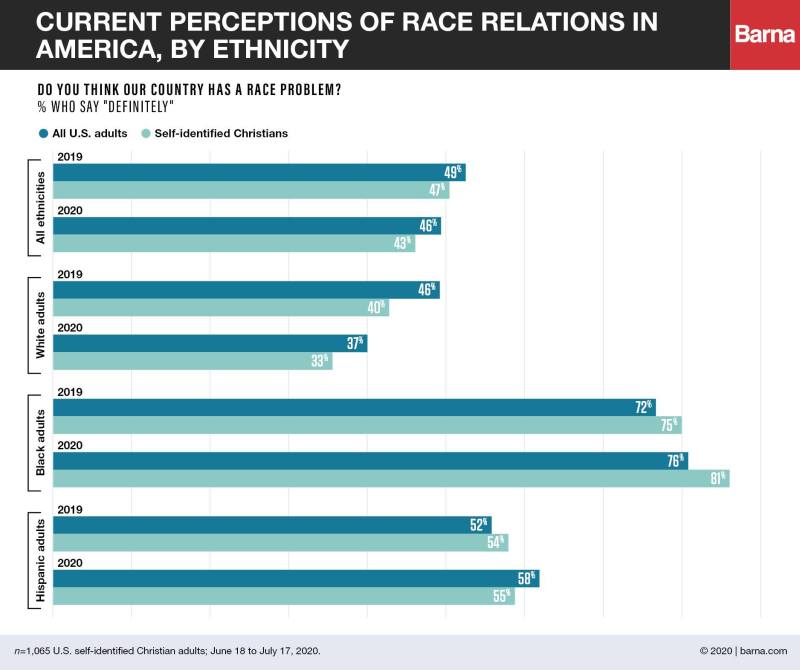
This year has seen a re-awakening of causes for social and racial injustice. With the murders of individuals such as George Floyd and Breonna Taylor sparking massive demonstrations across the country, the Black Lives Matter movement and the fight for racial injustice have gained more traction than ever. However, a recent research study by Barna and Dynata seeking to clarify American opinions on the matter, has found that not all Americans' perceptions have been affected by current events in the same way.
This July, Barna conducted a survey amongst Americans to gauge their concern for racial injustice in the country, and compared the results to that of a similar survey conducted a year prior. The survey results seemed to indicate that American Christians, and specifically white Christians, were willing to acknowledge racial oppression of the past, but not the present, nor did they have the motivation to address current racial tensions.
Data from last summer indicated that 46 percent of Christians believed the U.S. "definitely" had a race problem, however, from the recent July 2020 study, that number decreased to 43 percent. Additionally, practicing Christians also saw an increase in the percentage (11% in 2019 to 19%) of those who believe that racial issues are "not at all" a problem. Along with these findings, the data also demonstrated that white Christians are also increasingly unmotivated to talk about or address racial injustice.
From 2019 to 2020, the percentages of self-identifying and practicing Christians who were "unmotivated" to address racial injustices increased from 19 percent to 30 percent and 17 percent to 30 percent respectively. In addition to an increasingly "unmotivated" population, Barna's surveys also show that the amount of white self-identified Christians that were "somewhat motivated" to address racial injustice issues has declined from 35 percent to 29 percent. These numbers seemed to indicate that white Christians are rather averse to being involved in the country's racial issues, and that some of those who were on the fence about becoming involved ultimately decided they were firmly opposed to it.



















